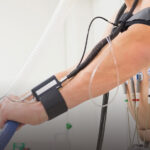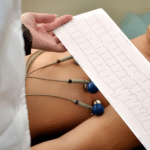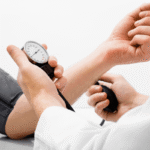Early Signs of Heart Failure You Might Miss
Feeling breathless after a flight of stairs or winding down for the day with swollen ankles might seem like part of a busy lifestyle, or simply a sign of getting older. But for some adults in their 30s, 40s, or 50s, these symptoms may signal something more concerning: early heart failure.
Heart failure doesn’t mean the heart has stopped working. Rather, it means the heart is not pumping blood as well as it should. When this happens, the body doesn’t get the oxygen and nutrients it needs, and symptoms, some of them subtle, begin to show.
Common but Overlooked Signs
Heart failure often develops gradually. Many people live with early symptoms for months or even years, attributing them to stress, lack of sleep, weight gain, or aging. Here are some signs that are frequently missed or brushed aside:
1. Shortness of Breath
You might notice you’re winded after activities you used to manage easily, walking to the MRT, playing with your children, or climbing stairs. Some people also feel breathless when lying flat, needing extra pillows to sleep comfortably. This is known as orthopnoea and may suggest fluid buildup in the lungs.
2. Unexplained Fatigue
Tiredness can come from many causes, but in heart failure, fatigue often doesn’t improve with rest. If you’re constantly feeling drained, especially after mild physical effort, it may be because your heart isn’t pumping efficiently.
3. Swollen Feet or Ankles
Swelling in the lower legs, ankles, or feet, known as peripheral oedema, can be a sign that the heart is struggling to circulate blood properly, leading to fluid retention. If this swelling is persistent or occurs alongside other symptoms, it’s worth investigating.
4. Waking Up Breathless at Night
Some individuals wake up gasping for air or feeling as if they can’t breathe deeply. This can be a red flag for heart failure and should not be ignored.
5. Persistent Cough or Wheezing
A chronic cough, especially when lying down, may be linked to fluid in the lungs, a potential consequence of heart failure.
“But I’m Too Young, Too Busy…”
Many adults in their prime assume they’re simply “out of shape” or overworked. But cardiovascular issues can develop quietly, especially in people with risk factors such as:
- High blood pressure
- Diabetes
- Family history of heart conditions
- Smoking
- Excessive alcohol intake
- Obesity
- Previous viral infections that may affect the heart
Even without these risk factors, structural or electrical heart abnormalities can contribute to heart failure in younger adults.
Listening to Your Body
At Heart Matters Medical Centre, we often see patients who delayed evaluation because they thought their symptoms were “normal.” One example is a 42-year-old professional who kept blaming his fatigue and leg swelling on desk-bound work and poor sleep. When symptoms worsened, tests revealed signs of early heart failure. With prompt treatment and lifestyle adjustments, his condition was stabilised, highlighting the importance of early recognition.
How Is Heart Failure Diagnosed?
Evaluation usually includes:
- Physical examination
- Electrocardiogram (ECG) – to assess heart rhythm
- Echocardiography – an ultrasound scan that looks at the heart’s size, structure, and function
- Blood tests – to check for markers of heart strain or other contributing conditions
- Chest X-ray – to detect fluid in the lungs
In some cases, additional monitoring or imaging may be required.
Management and Outlook
Heart failure is a long-term condition, but with the right approach, many people live well with it. Treatment may include medications, lifestyle modifications (like reducing salt intake or increasing physical activity), and close follow-up. The key is early identification and ongoing care.
Don’t Ignore the Subtle Signs
Breathlessness, swelling, and fatigue aren’t always due to a busy lifestyle or growing older. If these symptoms persist or interfere with your daily routine, it may be time to get your heart checked.
Speak with our team at Heart Matters Cardiac Centre to learn more about heart failure evaluation and care.














